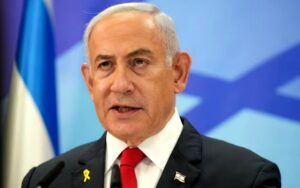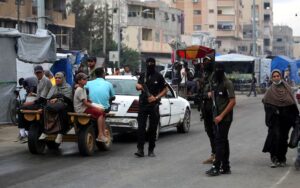Syria’s situation in UN… Back to square 2254 again!

The UN Security Council has re-introduced Resolution 2254 on Syria, which many considered forgotten following the fall of the Assad regime.
This resolution, which forms the basis for a political settlement in Syria, has once again raised questions about the motives for invoking it at this time, especially in light of the change in the ruling authority in Damascus and the increasing international pressure.
Meanwhile the current Syrian authority hoped that Resolution 2254 would be permanently rescinded, especially after the international community had shown reluctance to mention it in its meetings over the past period.
However, recent events in the Syrian coast and Sweida, and the accompanying violations, prompted the Security Council to re-introduce the resolution as a means of pressuring the new authorities in Damascus to change their political behavior or initiate genuine reforms.
Returning to resolution 2254 implementation was based on the 2012 Geneva Statement, which called for the formation of a transitional governing body to lead the country toward a comprehensive political process.
This hasn’t yet been achieved, despite the appointment of transitional President Ahmed al Sharaa to lead the transitional phase.
Official Syrian media clearly ignored the Security Council’s statement regarding Resolution 2254, in an attempt to limit its impact on local public opinion.
However, this disregard won’t prevent the international community from pushing for the resolution’s implementation, especially with the decline in external support on which the current government had relied.
The UN Security Council on the other hand, explicitly called for the launch of a Syrian-led political process based on Resolution 2254, ensuring the protection of the rights of all citizens regardless of their backgrounds.
The UN Security Council emphasized the need for this process to be inclusive and democratic, enabling Syrians to freely and independently determine their future.
The current Syrian government’s disregard for the UN’s role in the political transition process and its failure to mention democracy and pluralism in its rhetoric reflects a lack of genuine will to bring about radical change in the structure of government.
The UN Security Council, in its last meeting, used the term “Syrian Transitional Authorities” instead of “Syrian Government”.
This carries clear legal and political significance, placing the current authority within a temporary framework that doesn’t grant it absolute powers, but rather obligates it to work toward achieving national consensus leading to the formation of a unified government that enjoys domestic and international legitimacy.
The Resolution 2254 prevents any terrorist organizations from assuming power, including ISIS and Hay’at Tahrir al Sham, which he believes remain a part of the political landscape despite official statements about their dissolution.
Warnings about foreign fighters: In a related context, the Security Council emphasized the danger of the presence of foreign fighters in Syria, considering them a direct threat to regional and international security.
This warning reflects a shift in the international view of the situation in Syria and emphasizes that a political settlement must be based on a clear legal framework, namely Resolution 2254.
Meanwhile, UN Special Envoy to Syria Geir Pedersen is expected to deliver a briefing to the Security Council on August 21.
This briefing is expected to contribute to formulating a clearer vision for the future of the political process in Syria, given the rapidly evolving political and field situation.







